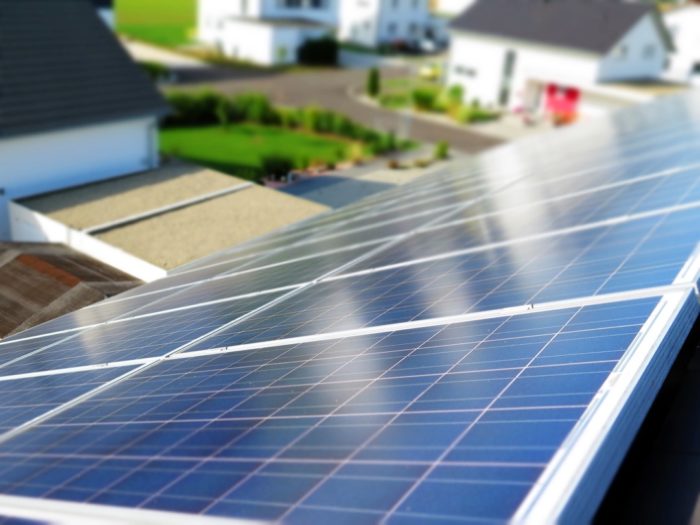
Image Credit: Moerschy / Pixabay
There are more than a million houses in the U.S. with solar panels installed on the roof and that number is increasing. Failing to address this issue properly when the house is sold can be legally difficult if not dangerous.
Some of the most common inquiries to this law firm arise from a failure to transfer ownership of installed solar panels correctly from one homeowner to the next.
We help real estate owners and buyers with this process, often looking at new approaches and possibilities. But contract forms for the sale and purchase of a house often are provided by a local board of Realtors, and today those forms do not adequately address the new and only now evolving issues arising from a sale with rooftop solar panels.
No single template for ownership
There is no one homogenized solar panel “deal” and the business terms including language addressing who owns the panels vary from one transaction type to another. In most instances these installations are governed by varying state laws. But commonly, residential solar panel leases provide language something like this:
“You agree that the solar panel system is the Company’s personal property under the Uniform Commercial Code. You understand and agree that this is a lease and not a sale agreement. The Company owns the solar panel system for all purposes.”
Obviously, selling a house when the solar panels on the roof belong to someone else raises some issues. Residential solar panel leases often provide language similar to this:
“If you sell your home you can transfer this lease and the monthly payments. The person buying your home can sign a transfer agreement assuming all of your rights and obligations under this lease by qualifying in one of three ways: (1) the home buyer has a FICO score of 650 or greater; (2) the home buyer is paying cash for your home; or (3) if the home buyer does not qualify under (1) or (2), if the home buyer qualifies for a mortgage to purchase your home and the home buyer pays us a $250 credit exception fee.
“Or, if you are moving to a new home in the same utility district, then where permitted by the local utility, the system can be moved to your new home. You will need to pay all costs associated with relocating the system…”
Timing also needs to be considered when entering into a contract to sell a house, as this sample phrase notes:
“You agree to give the Company at least 15 days but not more than 90 days prior written notice if you want someone to assume your lease obligations.”
Many, but not all, companies engaged in this business file a UCC-1 financing statement in the real estate records that puts third parties on notice to their rights in the system. That fixture filing is in most states a lien or encumbrance against the system. But in many residential transactions, title companies do not search the UCC-1 indexes because they are primarily used for business purposes, so solar leases are regularly missed.
However, the express language of solar system leases cannot be missed, as in:
“Except as set forth in this lease, you will not sublease, assign, sell, pledge or in any other way transfer your interest in the system or this lease without prior written consent.”
Explore legal options
There are ways of adding significant value to the real estate, but a solar lease, as well as any power purchase agreement, should be considered in light of federal and state laws (including tax laws).
This is not only a residential problem. This firm regularly receives inquiries arising from commercial real estate transactions that have not adequately addressed matters of solar panels, PPAs, tax credits and the like.
Selling a house with solar panels is not for the faint of heart. There can be real legal jeopardy and significant dollar liability for those failing to address the issues associated with solar panels. It may be worth your while to contact your attorney, or seek one with experience in dealing with solar assets.
Stuart Kaplow is an attorney specializing in environmental law. This post originally appeared at Green Building Law Update.
Weekly Newsletter
Get building science and energy efficiency advice, plus special offers, in your inbox.





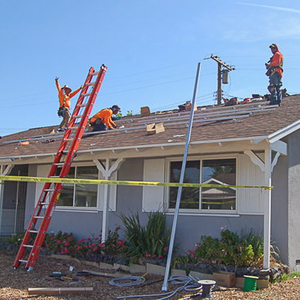
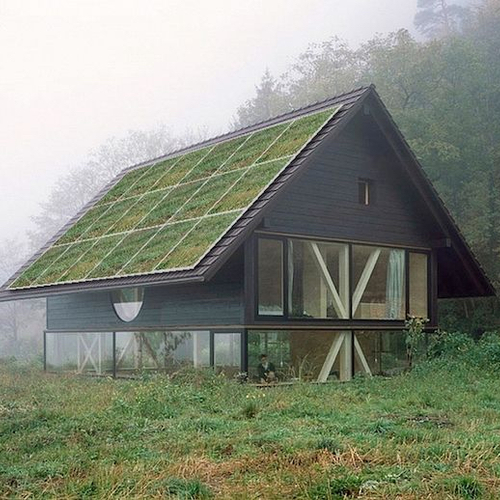
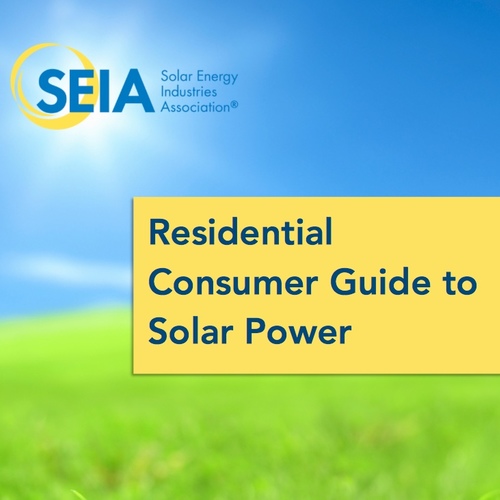
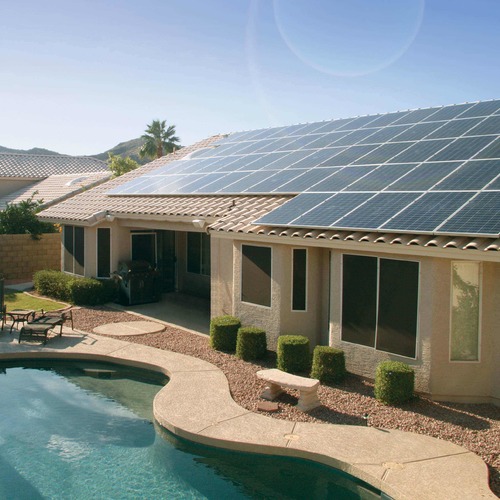






9 Comments
Thankfully if a title company misses the UCC search
the lender's underwriting dept will notice via appraisal that a PV array is on the roof.
Perhaps it's time that manufacturers drop their prices so they don't have to rely so much on leasing?
the onus is also on the buyer
More importantly, the buyer needs to be proactive to inquire if the panels are owned outright or being leased as part of their due diligence process.
It's not about the manufacturers @ John Clark
The raw hardware doesn't even add up to half the installed cost of a residential PV array.
In most cases the soft costs (not including installation labor) are about the same as the hardware costs. See the first graphic in the Executive Summary beginning on p. V (p.6 in PDF pagination) of this document:
http://www.nrel.gov/docs/fy15osti/64746.pdf
But in fact, the lease & power purchase aggrement models have been declining quickly over the past couple of years in favor of outright purchase, once the installed pricing fell under ~$4/watt, (currently averaging ~$3/watt nation wide), making the up front costs of purchase far more manageable. Here is a bit of analysis on that published late in 2016:
https://www.greentechmedia.com/articles/read/us-residential-solar-purchases-will-overtake-leasing-in-2017
While third party ownership was a primary driver of residential PV when the installed cost & financing costs were high, that model is no longer necessary for the residential PV market to grow.
As solar becomes more of a commodity, solar financing costs fall in line with other low-risk loans, and the solar financing marketplace continues to grow. When it's clearly a better deal to buy rather than lease, and it takes the same FICO score to finance it as it does to lease, the third party ownership lease or PPA models lose their cachet.
It's a competitive market, and the manufacturers' prices really ARE coming down, now that there is worldwide overproduction as China's policy is shifting from large-scale giga-farms (that need more transmission grid support to be useful) to 10 megawatt scale projects sited closer to the loads (on either side of the customers' meters.) In Q1 2017 utility scale PV in the US has already broken the buck-a-watt threshold already. It's really the soft costs that are ripe for cutting,not the manufactured goods.
Title of this article
The title of this article is misleading and should read "Leased Solar Panels". I know of a half a dozen previous clients who purchased and installed their PV systems, and later sold their houses, the system became permanently installed as part of the house, like any other piece equipment. The utility charges and metering agreements are newly negotiated between the new owner and provider, just like any other utility.
@Armando
I still suspect that the sellers aren't obtaining full value for their investment in the PV array. A PV array is akin to a swimming pool. Neither are permeant fixtures to the property so their "value" is much lower than the acquisition cost.
Its almost impossible to assign value to such a piece of equipment because there are so many outside variables attached to it (i.e. cost of power, gov't largesse, occupant behavior).
Response to John Clark
John,
You have it exactly backwards.
It's impossible to assign a value to a swimming pool or a bathroom with pink fixtures.
But it's extremely easy to assign a value to a PV system, which generates a predictable number of kWh of electricity annually, with a known value in dollars.
Owner lease back?
I've often wondered if PVs would make selling a house difficult because of the substantial increase in price necessary, relative to homes without panels.
If you're in a market where PVs are rare and not highly sought after, how do you avoid limiting your potential buyer base substantially?
Are there mechanisms regularly used by PV home owners to separate the price of the house from the price of the system (assuming they owned the system)? Such as the former owners leasing back the PV separately? Or even acting as a utility and charging usage fees? (which, given regulation, probably would be illegal in most places, I expect)
I wonder the same about rental properties. I'm in a position that I have a former home as a rental property, and between that and my current home, I'd like to entertain PV, but I'm not sure that these sorts of risks would substantially burden sale value and thus destroy the affordability of PV.
@ Martin and Stewart
@Martin, Actually you're mistaken. Inground swimming pools are routinely given a line adjustment on an appraisal. The dollar amount of the adjustment depends on local market conditions and it's usually not very much. . Bathrooms, regardless of their color, are assigned a value as well.
Solar panels are not permeant fixtures to the property. In essence they're no different than an above ground swimming pool. So yeah, you can assign a value to the amount of energy produced based upon current rates, and subsidies, but so what. Rates and regulations change and the homeowner can take them down for a variety of reasons (re-roof, damage). This is how it is now. Future changes to building codes (i.e. California Net Zero Initiative) may change the game a little.
@Stuart
I've seen no difference in home prices between those which have a PV array and those which do not. Since most panels are leased via PPA it just results in additional paperwork for the potential buyer if they want to keep them. From an approval perspective lenders just want to know whether or not they need to add an additional expense (same goes for PACE loans) to the borrowers ratios. One potential issue is efficiency. Would a potential buyer want to assume the lease of current panels or obtain an upgrade to higher efficiency panels? I suspect what will happen is that PV arrays will be treated like refrigerators or laundry machines. In some markets it'll be common that the property seller takes these items with them leaving the new homeowner to acquire their own.
Response to John Clark
John,
You may be accurately stating the way appraisers work in your area, but that doesn't make the approach logical. You're right: a roof-mounted PV system can be removed, but so can a bedroom addition or an attached garage. So what?
A house with a roof-mounted PV system is worth more than a house without a roof-mounted PV system, as several studies have shown. And the value of the PV system can be shown by analyzing the home's utility bills.
Log in or create an account to post a comment.
Sign up Log in